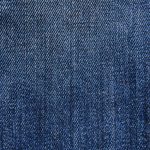When you consider stonewashing, the choice of fabric plays a crucial role in achieving the desired aesthetic and durability. You might find that lighter denim offers a softer, worn-in vibe, while heavier options can enhance ruggedness and distressing. Blends with cotton or natural fibers like linen can introduce unique textures, but synthetic materials might present their own set of challenges. As you explore these options, you'll soon realize that the right fabric can truly transform the final result, leading you to wonder which combinations yield the best outcomes.
Table of Contents
Key Takeaways
- Denim weight significantly affects the stonewashed appearance, with heavier weights yielding more pronounced distressing and rugged finishes.
- Cotton blends, like cotton-elastane and cotton-polyester, enhance durability and comfort during stonewashing while maintaining the fabric's integrity.
- Natural fibers, such as linen and hemp, provide unique textures and breathability, creating stylish, worn-in looks after stonewashing.
- Synthetic fabrics, like polyester and nylon, offer high durability and excellent color retention, making them suitable for stonewashing despite reduced breathability.
Understanding Stonewashing Process
When you think about stonewashing, it's important to grasp how this unique process alters the fabric's texture and appearance.
Stonewashing involves using abrasive materials, typically stones, along with detergent in a washing machine. As the stones tumble against the fabric, they create a soft, worn-in look while also enhancing the overall feel. This technique effectively breaks down the fibers, giving denim a faded and distressed appearance that many people love.
During the stonewashing process, the fabric undergoes significant changes. You'll notice that the color lightens, resulting in a more vintage vibe. The fabric also becomes softer and more comfortable to wear, which is a huge plus for many denim enthusiasts.
However, it's crucial to understand that stonewashing can weaken the fibers over time, leading to a shorter lifespan for the garment.
If you're considering stonewashing for your denim, be aware that the final result can vary depending on the duration and intensity of the process. Each batch can produce different shades and textures, giving you unique pieces that stand out.
Best Fabrics for Denim
When choosing the best fabrics for denim, you'll want to consider the weight and blend options.
The denim's weight can significantly affect its durability and feel, while the right fabric blend can enhance comfort and style.
Let's explore how these factors influence your stonewashing techniques.
Denim Weight Considerations
Choosing the right denim weight is crucial for achieving the desired look and feel in your stonewashing process. Denim weight influences how the fabric reacts to washing and abrasion, directly affecting the final appearance. Generally, denim weights range from light to heavy, with each offering unique characteristics.
Here's a quick reference table to help you choose the right denim weight:
| Denim Weight | Best Use |
|---|---|
| 8-10 oz (light) | Ideal for lightweight garments, like shirts and dresses. |
| 10-12 oz (medium) | Great for everyday jeans; balances durability and comfort. |
| 12-14 oz (heavy) | Perfect for workwear and rugged styles; offers durability. |
| 14-16 oz (extra heavy) | Best for structured pieces, like jackets and overalls. |
| 16 oz+ (super heavy) | Used in specialty items; provides maximum durability. |
As you select your denim weight, consider how it will respond to the stonewashing technique you plan to use. Lighter weights may create a softer, worn-in look, while heavier weights can develop a more rugged, distressed finish.
Fabric Blend Options
Selecting the right fabric blend can significantly enhance the stonewashing process, allowing you to achieve specific textures and finishes that elevate your denim designs.
When you're looking for the best fabric blends, consider combinations like cotton and elastane. This blend offers stretch and comfort while still maintaining durability, making it ideal for stonewashing.
Another popular option is a cotton-polyester blend. The polyester adds strength and helps the fabric retain its shape, which can be beneficial during the stonewashing process. You'll find that this blend often results in a softer feel and reduced fading.
You might also explore cotton with Tencel or lyocell. These fibers add a luxurious touch and improve the overall drape of the denim, allowing for beautiful, flowing shapes that enhance your designs.
Lastly, don't overlook blends featuring organic cotton or recycled fibers. These options not only support sustainability but also contribute to unique textures that stand out in the market.
Cotton Fabrics and Their Benefits
Cotton fabrics offer exceptional comfort and breathability, making them a popular choice for stonewashing techniques. When you choose cotton, you're opting for a material that feels soft against your skin, allowing for all-day wear without discomfort. This natural fiber is known for its ability to absorb moisture, keeping you cool and dry even in warm conditions.
Another significant benefit of cotton is its durability. Cotton fabrics can withstand the rigorous stonewashing process without losing their structural integrity. This means you can achieve that desired faded, vintage look while still maintaining the fabric's strength.
Moreover, cotton's versatility allows it to work well with various styles and designs. Whether you're creating casual wear or more refined pieces, cotton can adapt seamlessly. You'll also appreciate how easy it is to care for; cotton fabrics are generally machine washable and maintain their color and texture over time.
Blends That Work Well
Blends of cotton with synthetic fibers like polyester or elastane enhance durability and flexibility, making them ideal for stonewashing techniques. When you choose these blends, you'll find that the added strength allows your garments to withstand the rigorous stonewashing process without losing their shape or integrity.
Polyester helps resist wrinkles and shrinkage, while elastane provides stretch, making your clothes more comfortable to wear.
Another great option is cotton-nylon blends. This combination offers excellent abrasion resistance, which is crucial during the stonewashing process. You'll appreciate how these fabrics maintain their appearance even after repeated washes, giving you lasting style and comfort.
You might also consider cotton-rayon blends. While rayon adds a soft, luxurious feel, it also helps create a more fluid drape in your garments. This blend can yield a unique texture after stonewashing, giving your pieces a distinctive look that stands out.
Experimenting with different blends can lead to exciting results, so don't hesitate to explore your options. Each blend brings its own set of characteristics, ensuring that you find the perfect fabric for your stonewashing projects.
Natural Fibers for Stonewashing
Natural fibers like linen and hemp can also deliver stunning results when stonewashed, offering unique textures and breathability. When you choose these fabrics, you're not only opting for an eco-friendly material but also enhancing the overall aesthetic of your garments.
Linen's natural luster and crisp feel become softer and more relaxed through the stonewashing process, creating a stylish, worn-in look that's perfect for casual wear.
Hemp, on the other hand, is known for its durability and strength. When stonewashed, it develops a beautiful patina that highlights its organic characteristics. You'll find that both fibers effectively absorb dye, allowing for rich, deep colors that don't fade easily over time.
Furthermore, these natural fibers are breathable, making them ideal for warm weather. You can wear your stonewashed linen or hemp garments comfortably, knowing they'll keep you cool and stylish.
Incorporating natural fibers into your stonewashing projects not only elevates the look and feel of your clothing but also aligns with sustainable fashion practices. So, whether you're designing your own pieces or shopping for ready-made items, consider these options for a unique, eco-conscious choice.
Synthetic Fabrics: Pros and Cons
When considering synthetic fabrics for stonewashing, you'll find a mix of advantages and drawbacks that can impact your design choices.
One major benefit is durability. Synthetic fabrics like polyester and nylon can withstand the abrasion of stonewashing better than many natural fibers. This means your garments can maintain their shape and integrity even after multiple washes.
Another pro is color retention. Synthetic fabrics tend to hold dyes well, allowing for vibrant colors that can withstand the stonewashing process without fading quickly. This can lead to striking, eye-catching designs that appeal to consumers.
However, there are some cons to keep in mind. Synthetic fabrics can sometimes lack the breathability and comfort of natural fibers, which might deter some customers.
Additionally, they can be less environmentally friendly, as the production and disposal of synthetics often involve harmful chemicals and processes.
Care Tips for Stonewashed Fabrics
When caring for your stonewashed fabrics, it's important to consider how often you wash them to maintain their look and feel.
You'll also want to choose the right drying methods to prevent damage.
Let's explore some effective guidelines to keep your garments in great shape.
Washing Frequency Guidelines
To keep your stonewashed fabrics looking their best, wash them sparingly to maintain their unique texture and color. Over-washing can lead to fading and loss of that coveted soft feel. Aim for a washing frequency of every 5-7 wears, unless the fabric becomes visibly soiled or has an odor. This approach not only preserves the fabric but also extends its lifespan.
Here's a quick guide to help you determine when to wash your stonewashed items:
| Condition | Wash Frequency |
|---|---|
| Lightly worn | Every 5-7 wears |
| Slight stains | Spot clean or wash |
| Visible dirt | Wash immediately |
| Strong odor | Wash immediately |
| After a special event | Wash after use |
Always follow care labels, and consider turning your items inside out before washing to reduce friction and fading. By being mindful of how often you wash, you'll keep your stonewashed fabrics looking fresh and vibrant for years to come. Remember, less is often more when it comes to maintaining your favorite pieces!
Drying Method Recommendations
After washing your stonewashed fabrics, it's important to choose the right drying method to preserve their unique texture and color.
Opt for air drying whenever possible. Hanging your garments in a shaded area helps maintain their vibrant hues and prevents fading caused by direct sunlight. If you need to use a dryer, select a low heat setting. High temperatures can damage the fabric's softness and lead to shrinkage.
To enhance the drying process, consider tossing in a few clean, dry towels with your stonewashed items in the dryer. This can help absorb moisture faster without overexposing the fabrics to heat. If your fabric is particularly delicate, you might want to lay it flat on a clean, dry surface. This method allows for gentle drying while avoiding any potential stretching that can occur from hanging.
Always remember to check the care label for specific drying instructions. If your stonewashed fabric has any embellishments or unique finishes, it's best to err on the side of caution and air dry.
Frequently Asked Questions
How Does Stonewashing Affect Fabric Durability Over Time?
Stonewashing can weaken fabric fibers, causing them to fray and lose strength over time. However, it also creates a softer feel and unique appearance. You'll want to balance durability with the desired aesthetic for your projects.
Can Stonewashing Be Applied to Pre-Shrunk Fabrics?
Yes, you can apply stonewashing to pre-shrunk fabrics. It enhances the fabric's texture and appearance without causing significant shrinkage, allowing you to achieve that desired worn-in look while maintaining the garment's original size.
What Environmental Impact Does Stonewashing Have?
Stonewashing can have significant environmental impacts. It often involves water-intensive processes and harmful chemicals. You should consider eco-friendly alternatives to reduce waste and pollution while still achieving that desired vintage look in your fabrics.
Are There Specific Dyes That Work Better With Stonewashed Fabrics?
Yes, certain dyes work better with stonewashed fabrics. You should consider reactive or fiber-reactive dyes; they bond well with cotton, ensuring vibrant colors even after the stonewashing process. Experiment with different types for the best results.
How Do Different Washing Machines Affect the Stonewashing Process?
Different washing machines impact the stonewashing process by varying agitation levels and cycle durations. You'll notice that machines with strong agitation create more pronounced fading, while gentler cycles yield subtler, softer results on fabrics.
- Tetron Fabric for Marine Applications: Durability and Use Cases - June 18, 2025
- Tetron Fabric for Outdoor Furniture: Weather Resistance and Care - June 18, 2025
- Tetron Fabric for Wall Coverings: Style and Application Tips - June 18, 2025







